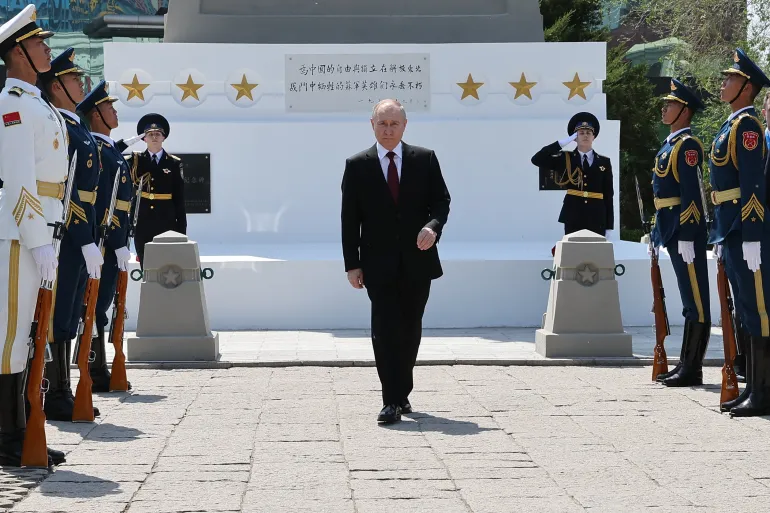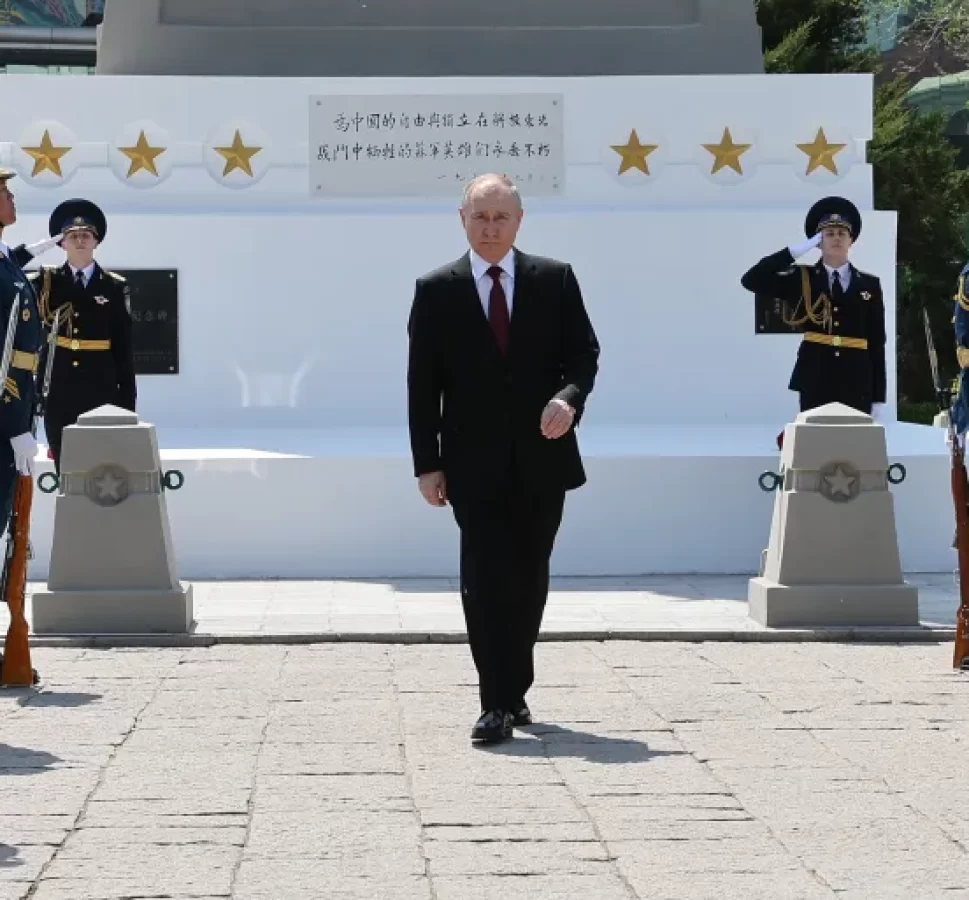
In a visit also focused on trade, the Russian leader hails the partnership with China that guarantees energy security.
Russian President Vladimir Putin is wrapping up his visit to neighbouring China aiming to win greater support from Beijing for his military operation in Ukraine and expand crucial trade to his country’s increasingly isolated economy.
Russia and China’s partnership has only grown closer since the invasion of Ukraine, and Beijing has rebuffed Western claims that it is aiding Moscow’s war effort, while offering a critical economic lifeline with trade hitting $240bn in 2023.
Putin visited the northeastern city of Harbin on Friday, the final day of his two-day visit, to highlight the two countries’ “trade and cultural exchange”, Chinese state news agency Xinhua reported.
On Thursday, Putin arrived in Beijing on his first trip abroad since his March re-election, meeting President Xi Jinping for talks in which the leaders framed their nations’ ties as a stabilising force in the international arena.
The two leaders “had an in-depth exchange of views on the Ukraine crisis”, Xinhua reported, adding that Xi spoke of China’s “consistent position and efforts to promote the political settlement of the Ukraine issue”.
Xi said he would continue to work with Putin to “achieve steady and lasting progress, bring more benefits to the two peoples, and contribute to world security and stability”.
Western countries have been mounting pressure on China to cut off support for Russia’s economy as the war in Ukraine grinds on.
Hub for cross-border cooperation
Putin visited Harbin to promote trade ties. Lying just a few hundred kilometres from the border with Russia, Harbin has long served as a key hub for cross-border trade and cultural exchange.
Speaking at the opening ceremony of a Russia-China trade exposition on Friday, Putin hailed energy ties between the two countries and promised to “strengthen” them.
“Russia is ready and able to continuously power the Chinese economy, businesses, cities and towns with affordable and environmentally clean energy,” he said.
“As the world is on the threshold of the next technological revolution, we are determined to consistently deepen bilateral cooperation in the field of high technologies and innovations,” he added.






